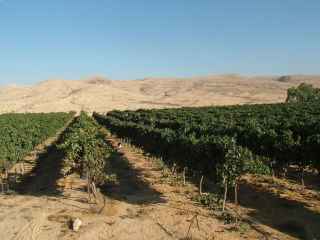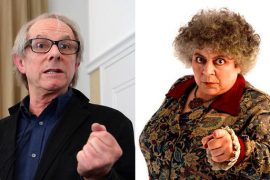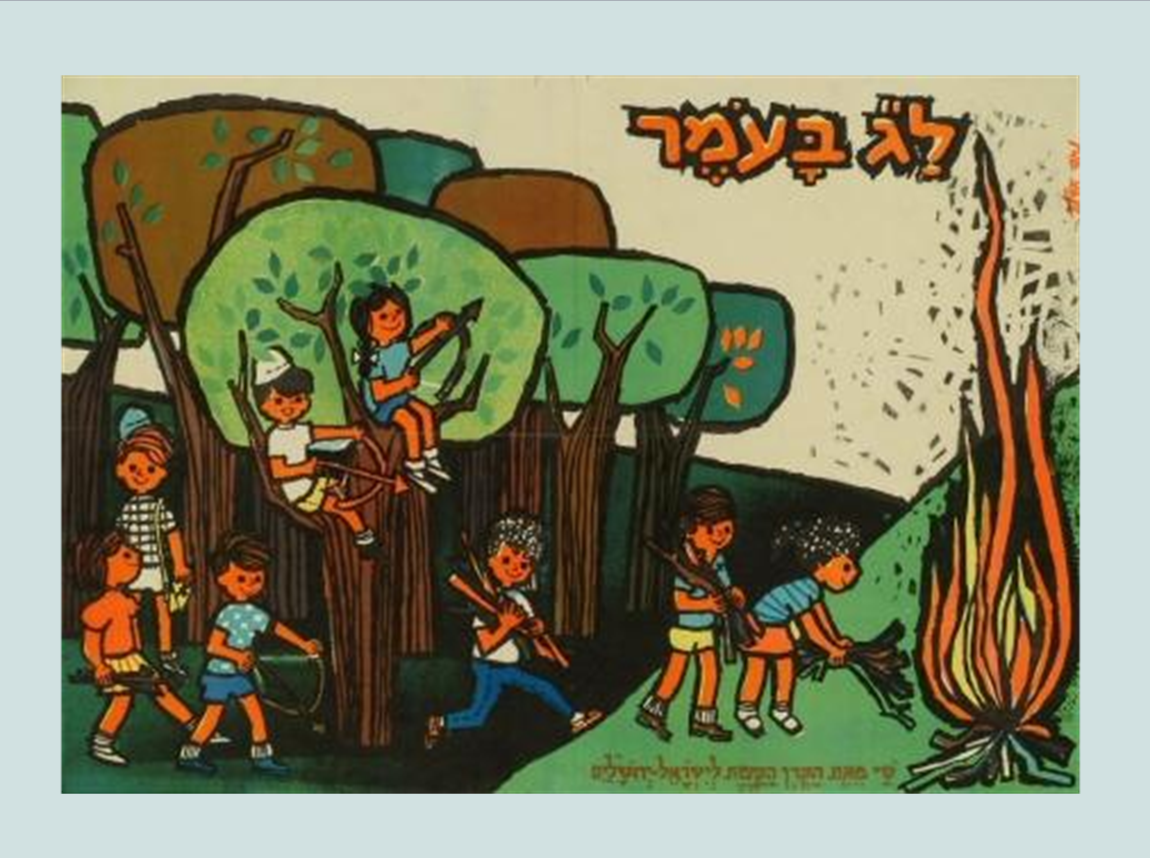On April 27th 2001 – exactly seven months after the second Intifada began – a group of Israeli citizens signed a petition calling for  international intervention in the ever deteriorating situation. That call, however, did not arise out of concern for the dozens of Israeli civilians who by that time had already been shot, stabbed or blown up by Palestinian terrorists.
international intervention in the ever deteriorating situation. That call, however, did not arise out of concern for the dozens of Israeli civilians who by that time had already been shot, stabbed or blown up by Palestinian terrorists.
“While we totally condemn acts of terror against innocent civilians, we regard Palestinian violence as being, on the whole, a legitimate revolt against colonial occupation. Despite the fact that many innocent Israelis have been victims of this revolt we understand that there can be no moral and military symmetries between occupiers and occupied.”
At the top of the list of signatories of that petition were Awad Abu-Freih from Rahat and Thabet Abu Rass of the Department of Geography at Ben Gurion University. Those two names will also crop up later in this story.
One of the easiest Middle East stories for a foreign journalist to tell these days is that of the Bedouin in the Negev. There is no shortage of supply of NGOs which will happily take that reporter on a tour and set up interviews with the ‘right’ people, ensuring that the ‘right’ side of the story gets told. There is also no shortage of journalists willing to take up those offers and they can even be back in their comfortable Jerusalem hotel by tea time, writing up a plethora of half-baked impressions fed by the telling of part of a story.
In January 2013, the BBC’s Tim Whewell went down the well-trodden path of reporting on the subject of the Negev Bedouin. He produced a filmed report which was shown on BBC Two’s ‘Newsnight’ and a written report which was featured on the BBC News website and includes the film.
In fairness, Whewell did feature Israeli views in his reports, both of which include interviews with members of ‘Ayalim‘ and the Israeli government spokesman Mark Regev. One of his other interviewees is the above mentioned Awad Abu Freih with whom Whewell spoke in Al Arakib, which is described as a village and as having been “demolished over and over again in the course of a lengthy legal battle”.
Awad Abu Freih lives in the nearby Bedouin city of Rahat, and has done for considerable time. In both the written and filmed reports, Abu Freih claims that he is discriminated against because of his ethnicity.
The written report states: 
“Like many Bedouin, he would like to have a farm. But he says Jews find it easier than Bedouin to acquire land for agriculture, because of the policy of encouraging Bedouin to live in towns.
“Why can’t Bedouin live with camels, when Jewish people can?” Mr Abu Freih asks. “It’s our profession to milk camels. But now I drink camel milk from Jews.” “
In the filmed report, Abu Freih puts his claims rather less subtly.
Tim Whewell: “But like many others he [Abu Freih] doesn’t want to live there [Rahat]. The new towns have high rates of crime and unemployment.”
Abu Freih: “This is our land, this is our area.”
TW: “Abu Freih wants to have a farm, just like David Ben Gurion did. But he says Jews find it easier than Bedouin to acquire land for agriculture.”
AF: “I want to live with..with…you know, with sheep or with agricultural life. If I was Jewish then they will give me and give me money. But I’m called me Awad and not Moshe, I can’t. I don’t have them.”
TW: “Because you’ve got a Bedouin name?”
AF: “Because I’m Bedouin. Because I’m not Jewish.”
Did Tim Whewell bother to check out that very serious allegation before including it in his report? It seems not. Had he done so, he  would have discovered that the Bedouin are able to rent land for agricultural use for the distinctly modest fee of three shekels (52 p/81 cents) per dunam (about a thousand square meters) for a period of nine months. As is the case in any modern country guided by the rule of law, what the Bedouin – or anyone else – are not allowed to do is to illegally take over land which they do not own.
would have discovered that the Bedouin are able to rent land for agricultural use for the distinctly modest fee of three shekels (52 p/81 cents) per dunam (about a thousand square meters) for a period of nine months. As is the case in any modern country guided by the rule of law, what the Bedouin – or anyone else – are not allowed to do is to illegally take over land which they do not own.
Despite Whewell’s passing mention of the “lengthy legal battle” surrounding Al Arakib, he failed to inform his readers of the background to that battle, taking Abu Freih’s claims of ownership entirely at face value. Had Whewell chosen to focus on the factual aspects of the story – rather than on those with a more emotional pull – his audiences would have learned that the subject of Bedouin land claims in the Negev – including Al Arakib – has a long and complicated history.
That history begins over a hundred and fifty years ago, back in Ottoman times. Awad Abu Freih’s co-signatory to the petition above, Dr. Thabet Abu Ras, who is a professor of political geography at Ben Gurion University and director of the Adalah Negev Project (also a member of ACRI and a former director of Shatil), has documented the actual sequence of events (the term ‘Naqab’, which was coined in the 19th century with the creation of the Egypt-Palestine frontier, means Negev).
“In 1858, the Turks enacted a law requiring that the names of landowners be officially recorded as a means of regulating land-related matters in the Ottoman Empire. There were five categories of land in the Ottoman Empire: Mulk (land under private ownership), Miri (state-owned land that could be cultivated for a one-time fee), Mauqufa (land in a religious trust or Islamic endowment), Metruka (uncultivated land), and Mawat (wasteland unsuitable for cultivation). Most of the land in the Naqab was categorized as Mawat. The Bedouin of the Naqab were opposed to the creation of a written record of their land holdings, since doing so would make them subjects of foreign rule. As such, they would be required to pay taxes and serve in the Ottoman army.
In 1921, the British Mandate government issued an order calling for residents of the Naqab to register their land. The Bedouin, who were given a two-month extension, did not do so, and their land remained unregistered. According to the Land Ordinance (Mawat) of 1921, a Bedouin who cultivated revitalized and improved Mawat land was given a certificate of ownership for that land, which was then recategorized as Miri. The courts of the new State of Israel, a country born 27 years later, ruled that any Bedouin who passed up the opportunity to register Mawat land in his name in 1921 and did not receive a certificate of ownership was no longer eligible to do so.”
In other words, if Bedouin land ownership claims are today often impossible to prove, the Bedouin have the choices made by their ancestors to thank for that.
As far as Al Arakib itself goes, the land take-over there began in 1998. The ‘residents’ were evicted at the time, but returned a year later and numerous times after that. The ILA (Israel Lands Administration) offered to rent the land to the squatters for two shekels a dunam, but they refused to pay. In 2003 the case went to the High Court, and whilst it was being heard, the Bedouin built illegal constructions on the land. Like Whewell’s interviewee Mr Abu Freih, those repeatedly evicted from the land at Al Arakib – to which they have failed to produce a valid legal claim in numerous court cases – are residents of Rahat, which was established in the 1970s.
and numerous times after that. The ILA (Israel Lands Administration) offered to rent the land to the squatters for two shekels a dunam, but they refused to pay. In 2003 the case went to the High Court, and whilst it was being heard, the Bedouin built illegal constructions on the land. Like Whewell’s interviewee Mr Abu Freih, those repeatedly evicted from the land at Al Arakib – to which they have failed to produce a valid legal claim in numerous court cases – are residents of Rahat, which was established in the 1970s.
Like many countries – including Britain – Israel faces challenges in reconciling the wants of its formerly nomadic communities with the obligations of a modern state based on the rule of law. The majority of Bedouin in the Negev already live in seven purpose-built towns where services such as education, health-care, electricity and running water can be provided. An additional 13 new communities are planned and the Bedouin who move to them enjoy incentive packages to which they alone are eligible, including free land and infrastructure, compensation for leaving illegally built structures and relocation grants.
In recent years, however, the subject of land ownership in the Negev has become a PR tool used by politically motivated NGOs such as  Adalah and others to delegitimize Israel. The physical take-over of land, together with ownership claims, has been the subject of many court cases and even more frequent articles and reports by foreign journalists and ‘human rights’ groups. Significantly, Adalah is also involved in a campaign to remove Jewish residents from the Negev, but that subject does not seem to interest the foreign media at all.
Adalah and others to delegitimize Israel. The physical take-over of land, together with ownership claims, has been the subject of many court cases and even more frequent articles and reports by foreign journalists and ‘human rights’ groups. Significantly, Adalah is also involved in a campaign to remove Jewish residents from the Negev, but that subject does not seem to interest the foreign media at all.
For any foreign journalist aspiring to report on this subject accurately and impartially, it is not sufficient to merely interview people on both sides of the story (often without proper disclosure of their affiliations) and allow them to promote claims which do not stand up to scrutiny. It is also essential for such journalists to understand the history, the political background to the disputes and the motivations of those they interview.
Unfortunately, Tim Whewell’s apparent failure to check out Awad Abu Freih means that audiences watching or reading his reports were left with little factual knowledge about the subject, but with the definite subjective – and mistaken – impression of a dispute fueled by Israeli racism. That is neither accurate nor impartial reporting: it is an attempt to define a narrative.




